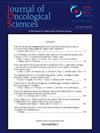导管周围纤维蛋白鞘钙化模拟保留导管碎片
Q4 Medicine
引用次数: 0
摘要
据报道,TIAPs在癌症患者中是安全且被广泛接受的TIAPs对于需要多次化疗、肠外营养、长时间静脉药物治疗(抗生素等)和反复抽血的患者非常有用。此外,化疗药物通过中心静脉途径给药时,静脉毒性较小。大多数TIAPs病例在治疗完成或死亡前均无并发症,在整个装置使用期间并发症发生率为19%在这里的病例报告中,描述了一种罕见的tiaps并发症-导管周围纤维蛋白鞘钙化模拟导管碎片保留-以提高医学专业人员对这种情况的认识。本文章由计算机程序翻译,如有差异,请以英文原文为准。
Pericatheter Fibrin Sheath Calcification Mimicking Retained Catheter Fragment
(TIAPs) are reported to be safe and well-accepted among cancer patients.1 TIAPs are useful in the management of patients who require multiple chemotherapy sessions, parenteral nutrition, prolonged intravenous drug treatment (with antibiotics, etc.), and repeated drawing of blood. Moreover, chemotherapeutic agents are associated with less venous toxicity when administered via the central venous route. Most cases of TIAPs remain complication-free until treatment completion or death and present a complication rate of 19% during the entire duration of device usage.1 In the case report presented here, a rare complication of TIAPs-peri-catheter fibrin sheath calcification mimicking a retained catheter fragment-is described to increase the awareness of this condition among medical professionals.
求助全文
通过发布文献求助,成功后即可免费获取论文全文。
去求助
来源期刊

Journal of Oncological Sciences
Medicine-Oncology
CiteScore
0.10
自引率
0.00%
发文量
16
审稿时长
29 weeks
 求助内容:
求助内容: 应助结果提醒方式:
应助结果提醒方式:


